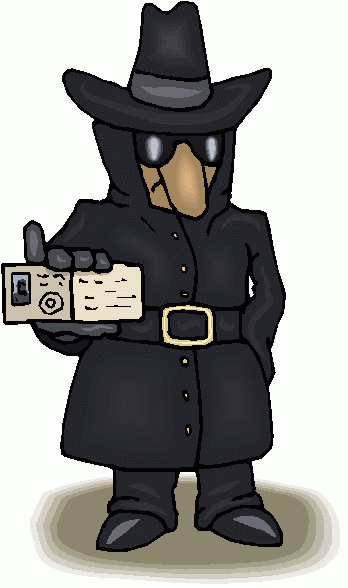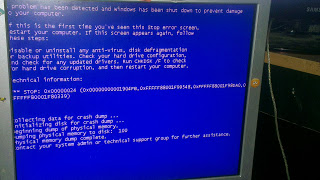Hackers/Kidz today live in a different world than the one we did....
The hackers we knew/were! lived in a different world.
While i was reading an article about how to become hacker and modern day hacking/hackers i was taken back to my own youth and my “illegal” activities for which connecting to (and later having one setup at home) bbs systems were essential activities as well as a source of fun. I guess i was a bit earlier than you were (PCBoard existed as a “wouldn't it be awesome if we could do that?” daydream only) and there were no laws concerning computer related activities, hence the quote signs around illegal.
And of course, as expected, tsunami waves of nostalgia washed over me with almost overwhelming force while i thought back to those days, seeing my old bedroom and the 2 computers (Commodore Amiga 500 and and an 80286 IBM compatible) which i had setup on the office desk my dad had given me. Seeing myself sitting at the tv set side of the desk while keeping a close eye on the green characters rolling by on the black and green monitor hooked to the pc. Debugging those endless lines of assembler code until tears pore over my face due to the eye-burning resolution with which the Amiga showed its text in the cli.
But this time, other than those many moments of nostalgia that seem to go with crossing that 40 year age mark, i also had a profound sadness twisting my gut in a desperate reach for attention. After a couple of moments i realized what spawned that emotion. As i saw myself back in my parent’s house bedroom i also recalled the excitement with which i experienced everything then. Everything that was new was awesome and each single morsel of information you discovered (while reverse engineering the copy protection you were engaged in battle with for example) felt like a victory.
I also remember the ambition and the high hopes, nay the determination and conviction, about my future that i had back then. I was convinced that the skills i had picked up and would be picking up doing my unethical deeds were more than sufficient to provide me with a handsome income until i struck it rich and retired as a wealthy celebrity and take my place in the then evolving hall of computer history legends (or buy the damned hall and raze it to the ground). The notion of not getting rich, nor not becoming an IT-Legend among the greats in history, never once entered my thoughts as they were to inconceivable to contemplate.
Now there are times that i look back at my life and my past, times like these when some fellow grandpa geek puts up a nostalgia post on some blog i happen to come through, and find myself unable to ignore or deny the lost opportunities, missed chances, paths not taken and simple complacency that could have, should have and would have resulted in the ambitions of that young awestruck teary eyed kid being achieved. I can’t think back without remembering the ideas that came and went without me ceizing them to use them to carve out a piece of the pie for myself and remembering those who did, sometimes years after i thought of something, made billions cashing in when they came up with it.

So while the warm fuzzy waves of nostalgia never fail to put a smile on my face the faces of people like mark zuckerberg, Trip Hawkins, Steve Jobs, Biz Stone and Dmitry Alimov among others haunt the memories like ghosts. I know i have no excuses for not being in the lists those men are, taking their rightful places in the history of the computer and internet revolutions. In the end there is no one but me that is responsible for being broke, in debt, single (divorced) and unemployed scraping and struggling to provide a decent and comfortable life to my kid who i am raising on my own.

The point i am making though(i guess) is that though many of those for whom the computer and hacking were a big part of their youth’s and lead them to become successful in life an even larger number of people with as much fascination, awe and enthusiasm (obsession?) for the computers and the things you can do with them did not.
Being a hacker, hacktivist, cracker or whatever kind of computer geek is not the key factor in turning a youthfully passion into a successful career and way of life. In fact it tends to consume the hackers attention, focus, time and eventually the potential for success and wealth of the hacker. This can only lead to the conclusion that that which makes a good hacker do not inherently make for a successful future.
Many of those whom you come across in the lesser known and lesser regulated parts of the internet are this generation’s hackers who have got in their heads the idea that while they’re having fun with the tech part of hacking (ie. breaking into systems, obtaining secret data, defacing site and ddos strikes) they are acquiring skills and knowledge which will guarantee them a well-payed job in cybersecurity one day. They have the sense that what they’re doing isn’t wrong, has low rist of capture and at worst get themselves fame and fortune like snowden and Assange in what they experience as “the scene”. They are convinced they’re not doing anything illegal (at least when they begin) and have little to fear from law-enforcement and certainly do not consider how government intelligence might regard them.

But theirs is not the world we lived in. Far from being something very few knew anything about beyond being good at math the computer has become such common technology it is becoming something no longer even consciously noticed by the general populace, only given thought to when it isn’t there or when it malfunctions. The average person has a hundred times more knowledge about computers and operating them than the average gamer geek did in our day. Computers now form a “legitimate” target for criminals to make a lot of money in a short amount of time and effort which leads the young hacker generation to be regarded by criminal minds and organisations as potential profitable resources. Governments and law-enforcement of the present posses skilled and determined experts capable of investigating, finding, and capturing hackers for which warrants have been issued but laws and regulations addressing cyber crime to back them up. Communication methods and resources which were safe in our day simply because of the ignorance about anything digital of government and law enforcement personnel preventing them from knowing there was even such a thing as cyber crime. Security was meant to keep rival peers out of computer systems rather than anything criminals or terrorists could do.

The drastic consequences for present day hackers, hacktivists, cyber-criminals and anyone else with nefarious activities involving computers or the internet have recently begun to get the mass media’s attention since wikileaks and Assange’s successes were overshadowed by their forced exiles to escape prosecution. It was not enough though to dissuade many wannabe’s and gonnabe’s from getting involved in white hat hacking, ethical hacking or activity branded as such erroneously. “Penetration testing” Linux live cd distributions have contributed to lowering the threshold for active participation with hacktivistic operations even further increasing the volume of potential recruits for criminal organisations.
Being a hacker or even a facilitator these days is not only a lesser source of pride and sign of skills it has also much greater potential for getting into trouble with both criminal organisations and the law-enforcements. The smokescreen of romanticism and heroification that our generation created around “the hacker” as a kind of cyber Robin Hood is only slowly evaporating from the minds of the current generations. With the centenses for the Lulzsec members, the betrayel by sabu, the death of Aaron Swartz and the fa(i)ll of Lizerdsquad making the news and mass media the true nature of what it is today to be involved with what is regarded as hacking is getting notice giving many of those who were potentially drawn to become part of the scene pause but still too often fails to emotionally or intuitively be pervceived as directly linked in causality.

I think that authors of articles encouraging hacking and popularizing "the scene" should maybe consider the changed landscape in the digital universe of today a bit more and add more “don’t try this at home”-ish warnings or disclaimers to their publications. The hackers as we knew them, admired them and became them no longer exist, as sad as that might make many an “old geezer” like the author of the article and myself. We should dissuade anyone from aspiring to become one in the reality of today.

Still, there was that nostalgic smile there for a moment….